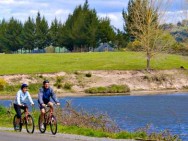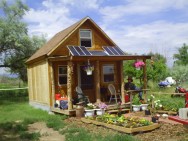How many people are living off the grid in the UK?
In 2010 Off-Grid.net estimated there were 100,000 living off the grid in the UK. We think it has increased since then to 200,000, mainly due to the increase in mobile off-grid living – in vans, boats cars and buses. But also due to a growth in the number of off-grid communities and the increasing size of each of those off-grid communities.
Types of off-gridder
There are many reasons for living off-grid – the most common is wanting to live an ecological life – reducing your carbon footprint- – but there are also survivalists and preppers who think they are protecting themselves against the coming social collapse. Then there are those who live this way because they have no choice – they are living off-grid to save money. Even if that is not the primary motive you are likely to save money when you cut out Utility bills and remembering that off-grid properties are likely to be cheaper to buy or rent than connected properties. The environment will supply you with energy, heat, water, and food.
It may seem daunting as you contemplate setting out on your off-grid life – but remember: over a billion people already live off the grid around the world. And their challenges are probably far greater than your own.
But let’s not underestimate the problems.
UK Off-Grid Living, Living Off the Grid in the UK – Which is the Correct Phrase & What does it all mean?
In the UK we tend to say “off-grid”. In the USA they prefer to say “off the grid” except when talking about technical energy infrastructure arrangements.
It makes a huge difference where you choose to go off-grid – every part of the planet is different and UK off-grid living is vastly easier than, say, off-grid living in Alaska where the extreme cold magnifies the problems. There is an initial cost of setting up and it is greater in the UK than for example going off-grid in India. And it is hard work – in general, the less you pay, the harder the work. But if you intend to live off the grid in the UK, there are no insurmountable obstacles.
You will be adding to your workload when you run your own power supply, water supply, and deal with your own waste. You may miss the urban support systems – but in exchange, you will be spending more of your time in nature than you did before stepping outside the system. You find you feel closer to nature, as the weather on any given day will affect your life much more directly, in terms of your renewable energy production as well as the temperature.
You may also decide to produce your own food – but that is not necessary, and can add an extra back-breaking load to an …







